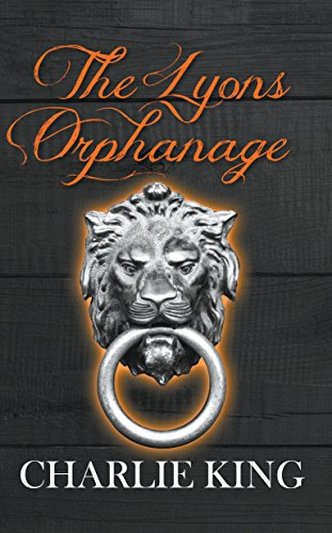 ***I received a copy from the author in exchange for an honest review*** I’m going to do something a little new with my reviews—starting with “The Lyons Orphanage”. Normally, I give a little synopsis of the book, but you can read that on your own. My reviews are always long, and ultimately, I want to get to the meat of the review faster. We’ll see how it goes. Anyway, in King’s novel, we follow around Sam the orphan as he goes about his day, and I mean really, we see every detail of his day and it makes you feel kind of bad for the orphans, because their days sound so mundane and boring. Unfortunately, it’s also not great for the reader, as the book falls into the same trap on many occasions. The synopsis sounds so cool, though! A kid who can read the minds of everyone but a select few? Who’s also stuck in an orphanage with a nefarious power struggle? Sign me up! Right? Yes well, the synopsis made it sound a lot more like the page-turner I wanted, but never really got. I’ll give King credit for creating an interesting premise, and doing a good job of giving his main character a cool ability that could be “over powered” but isn’t because of the inherent flaws that Sam has with having to focus on reading minds, how that makes him slow to react sometimes, not listening in to everyone’s thoughts all the time—as having that many voices in your head would drive anyone crazy, and also not being able to read everyone’s minds as is the case with the owner of the orphanage, Mr. Lyons. These restrictions on the power are great, as it sets up the ending with how the power struggle is resolved and what’s-up with Mr. Lyons and Sam to begin with. There aren’t any loose ends by the end of the book, which is great, but I wanted the journey towards that ending to be more fun, and tenser.
It comes down to the book consisting of almost entirely of “tell” rather than “show”. All the action, all the revelations, everyone’s motivations and feelings, comes through in dialogue between characters. And its dialogue that feels forced, which leaves the children (who are supposed to be barely teenagers) sounding exactly like the adults, and sometimes much more mature than them, too. For a group of kids whose parents were either killed while they were old enough to remember them, or never knowing them to begin with, the ones we are introduced to are too normal, too well put together, which made them and their interactions with one another pretty flat-footed. Because of the formula of “telling” that the author uses for his novel, it means that his villains also fall into the monologue-ing trope at the end. They get pestered with questions and then tell the kids exactly why they did all their misdeeds, how they got away with it, and how they will continue getting away with it because the good guys won’t be able to do “X” in time; all it was missing was the evil cackling. Which, unfortunately, made the resolution feel a bit ham-fisted because it was so hard to believe that the bad guy would do those things, and have such a flip in personality. It kind of felt like an old school ScoobyDoo episode in that regard. The makings of an interesting story are there. The idea, the premise, the emotional turmoil of orphans, is all set-up, it’s the delivery that falls flat for me. The dialogue isn’t great which, if you do the “telling” thing instead of “showing” is a must, and spending so much time on the orphanage’s boring days and lackluster food got tedious. Ultimately, I don’t think this book was for me, but given it’s easy to understand writing, the age of the characters, the lack of mature language and content, I think it’s suitable for a younger audience, and may even be better as a children’s book. The book is not very long, but as I really needed to push myself to finish it, I have trouble giving it above 2 stars, but here’s hoping that maybe the author tweaks it a bit in future editions as, like I said, the makings of a great story are all there!
0 Comments
Leave a Reply. |
Click the book images to see them on Amazon!
Categories
All
|






 RSS Feed
RSS Feed



















